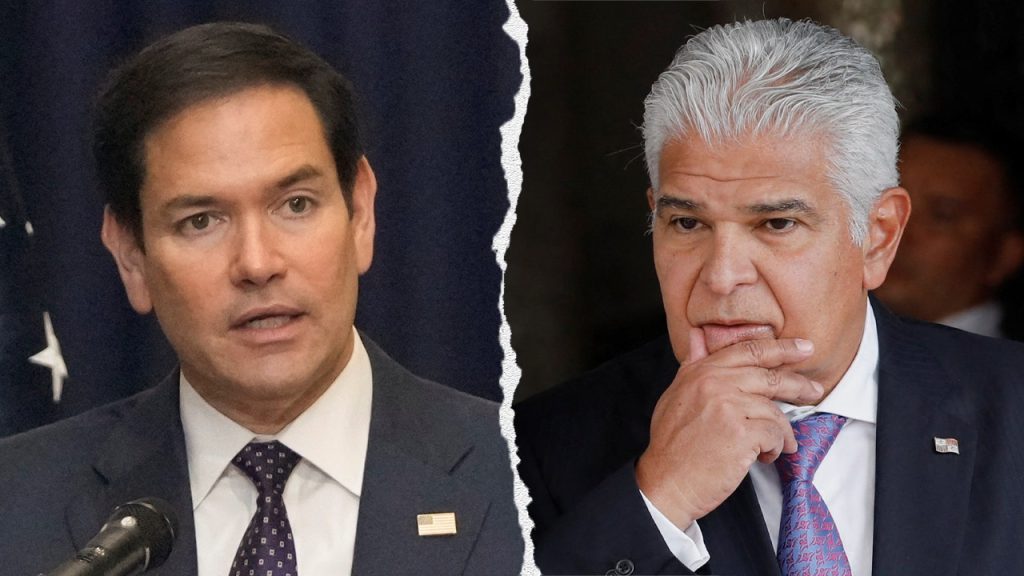The nascent administration of President Donald Trump faced a perceived challenge to American interests in Panama, centered around the Panama Canal and China’s growing influence in the region. Trump and his allies expressed concerns about China’s purported control over the strategically vital waterway, leading to calls for the United States to repurchase the canal. This narrative fueled a diplomatic push by the Trump administration, culminating in a visit by Secretary of State Marco Rubio to Panama, where he met with Panamanian President José Raúl Mulino.
Rubio’s visit, his first international trip as Secretary of State, underscored the Trump administration’s commitment to reasserting American influence in the region and countering China’s Belt and Road Initiative. The meeting between Rubio and Mulino proved pivotal, with Mulino announcing Panama’s intention to terminate its memorandum of understanding with China regarding the Belt and Road Initiative and to prioritize closer collaboration with the United States. This decision signaled a potential shift in Panama’s foreign policy orientation and an openness to increased American investment.
The controversy surrounding China’s involvement in the Panama Canal stemmed from Trump’s assertions that China effectively controlled the canal and imposed exorbitant fees on American ships transiting the waterway. These claims, however, lacked substantiation and misrepresented the nature of China’s presence in Panama. While Chinese companies had invested in port facilities and other infrastructure projects near the canal, they did not control the canal itself, which remained under the sovereign authority of Panama. The narrative of Chinese control served to justify the Trump administration’s aggressive stance toward China and its efforts to bolster American influence in the region.
Congressional Republicans, echoing Trump’s concerns, introduced the Panama Canal Repurchase Act, a bill that would grant the president the authority to negotiate the reacquisition of the canal from Panama. This legislation underscored the Trump administration’s willingness to consider drastic measures to address the perceived threat posed by China’s growing influence. Proponents of the bill argued that regaining control of the canal was essential for American national security and economic interests. They cited the canal’s strategic importance for US military and commercial shipping, as well as the potential economic benefits of controlling the canal’s revenue stream.
The strategic significance of the Panama Canal is undeniable. Connecting the Pacific and Atlantic Oceans, the canal significantly reduces transit times and costs for ships traveling between the two oceans. For the United States, the canal is a vital link for trade and military operations. A significant portion of American maritime traffic passes through the canal, highlighting its importance for the US economy and national security. The potential for disruption to this vital artery was a key driver of the Trump administration’s concerns about China’s presence in the region.
Beyond the Panama Canal issue, Rubio’s visit also addressed other key concerns for the Trump administration, including the regional migration crisis and ensuring fair competition for American businesses. These issues reflected a broader agenda of promoting American interests and countering perceived threats in the Western Hemisphere. The meeting with Mulino marked the beginning of a concerted effort by the Trump administration to reshape its relationship with Panama and the broader region, with a focus on containing China’s influence and advancing American economic and security interests. The controversy surrounding the Panama Canal served as a catalyst for this renewed focus on Latin America and the beginning of a period of heightened tension between the United States and China.














